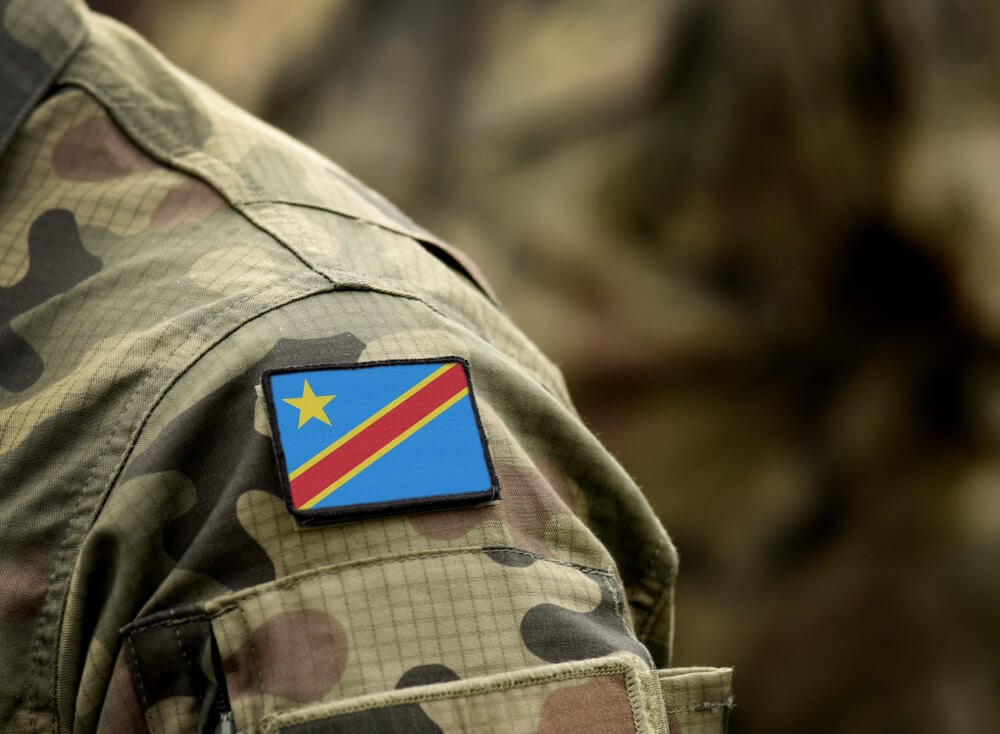Conflicting US foreign policy priorities on China, climate change and human rights is being sharply illustrated in the murky dealings over rare mineral mining involving an Israeli billionaire in the Democratic Republic of Congo.
Not only civil society groups but also members of the US Congress fear political and economic expediency will win out, while Washington juggles competing demands over several sticky situations from action on Gaza to diversification of supply chains from China.
Passions run high and there are no easy answers as human rights again hits the hard wall of economic necessity in the nexus of the DRC.
The DRC is the world’s largest source of cobalt, needed for electric vehicle batteries in the transition from fossil fuels. Chinese companies currently dominate the cobalt mining sector and the US wants to clear the path for more western companies to get a slice of the pie.
This involves a US plan to ease its sanctions imposed on Dan Gertler, an Israeli tycoon, over alleged corrupt dealing in the DRC that he vehemently denies. He could get up to a reported $300 million if he is allowed to sell royalty streams from three mining projects back to the DRC government under special US licences, which would also allow him to regain access to the US financial system.
“We fear that if sanctions are removed, Mr. Gertler will profit massively off his ill-gotten assets to the detriment of the Congolese people,” wrote a group of four congressional lawmakers to US President Joe Biden last month. “Such an event would significantly undermine efforts to combat transnational corruption and US foreign policy and national security interests.”
Human and environmental catastrophe
The human cost of the DRC’s mines is well documented, including slavery, child labour, debt bondage and human trafficking amid rising global demand for “conflict minerals” including tin, tungsten and tantalum, known as 3T.
iPhones and other products made by the tech giant Apple are “tainted by the blood of the Congolese people,” according to a letter sent to the company in April by lawyers for the DRC, which is considering legal action.
“Our daily lives are powered by a human and environmental catastrophe in the Congo,” wrote Siddharth Kara in his book “Cobalt Red”.
Dan Gertler has said the sanctions have been “crippling”, he had “been punished” enough and that he was willing to sell his assets
Gertler has been aggressive in seeking to protect his reputation. Over the last couple of years, he has filed lawsuits claiming defamation and monetary damages against civil society groups including a DRC anti-corruption coalition called Congo is Not for Sale, the web site African Intelligence, and the Israeli newspaper Haaretz.
Under the US plan, the lifting of sanctions is conditional on Gertler withdrawing these lawsuits. He has said the sanctions have been “crippling”, he had “been punished” enough and that he was willing to sell his assets.
The conflict could escalate
The US first imposed sanctions against Gertler under the Global Magnitsky Human Rights Accountability Act in 2017. According to a US Treasury press release, Gertler “used his close friendship with [former] DRC President Joseph Kabila to act as a middleman for mining asset sales in the DRC, requiring some multinational companies to go through Gertler to do business with the Congolese state.”
Between 2010 and 2012 alone, the DRC reportedly lost over $1.36 billion in revenues from the underpricing of mining assets that were sold to offshore companies linked to Gertler, said the Treasury. The last US-owned company left DRC in 2020.
The complicated conflict in DRC garners few western headlines. Pope Francis did use last Sunday’s prayers to urge an end to bloodshed after almost 150 people, including Christians, were killed by Islamic State-linked militants in recent weeks.
 An estimated 120 groups are fighting over land and mineral resources, seven million Congolese are displaced, and violence has persisted for decades in the DRC
An estimated 120 groups are fighting over land and mineral resources, seven million Congolese are displaced, and violence has persisted for decades in the DRC
An estimated 120 groups are fighting over land and mineral resources, seven million Congolese are displaced, and violence has persisted for decades in the DRC.
The conflict could escalate regionally because South African, Burundian and Tanzanian troops are fighting against the Rwandan army which reportedly supports the rebel M23 group in Eastern DRC.
Furthermore, DRC’s ties with Israel have tightened since the 7 October Hamas attack on Israel, which is reportedly expected to increase supplies and training to DRC special forces over the next 12 months.
A win for the US and the DRC
However, the decision to ease sanctions against Gertler might secure a win for the US and the DRC, argued the Atlantic Council think tank in a recent commentary.
If more western companies were able to operate in DRC, they would gain greater profits and help the DRC by paying market rates, it said. The US Treasury could also help with measures for anti-money laundering and combating the financing of terrorism (AML/CFT).
The US does not need to negotiate with Gertler to get access to strategic minerals - Jean Claude Mputu
But the US does not need to negotiate with Gertler to get access to strategic minerals, said Jean Claude Mputu of the Congo is Not for Sale group in a letter sent to Anthony Blinken, US secretary of state.
“Today's armed conflict and acute suffering in the Eastern region of the DRC is a consequence of the predatory behaviour that has taken root in my country, of which Mr. Gertler is one of the principal architects,” he said.
Human rights activists have vowed to resist Gertler but, as in Gaza, the US may well forge its own path.